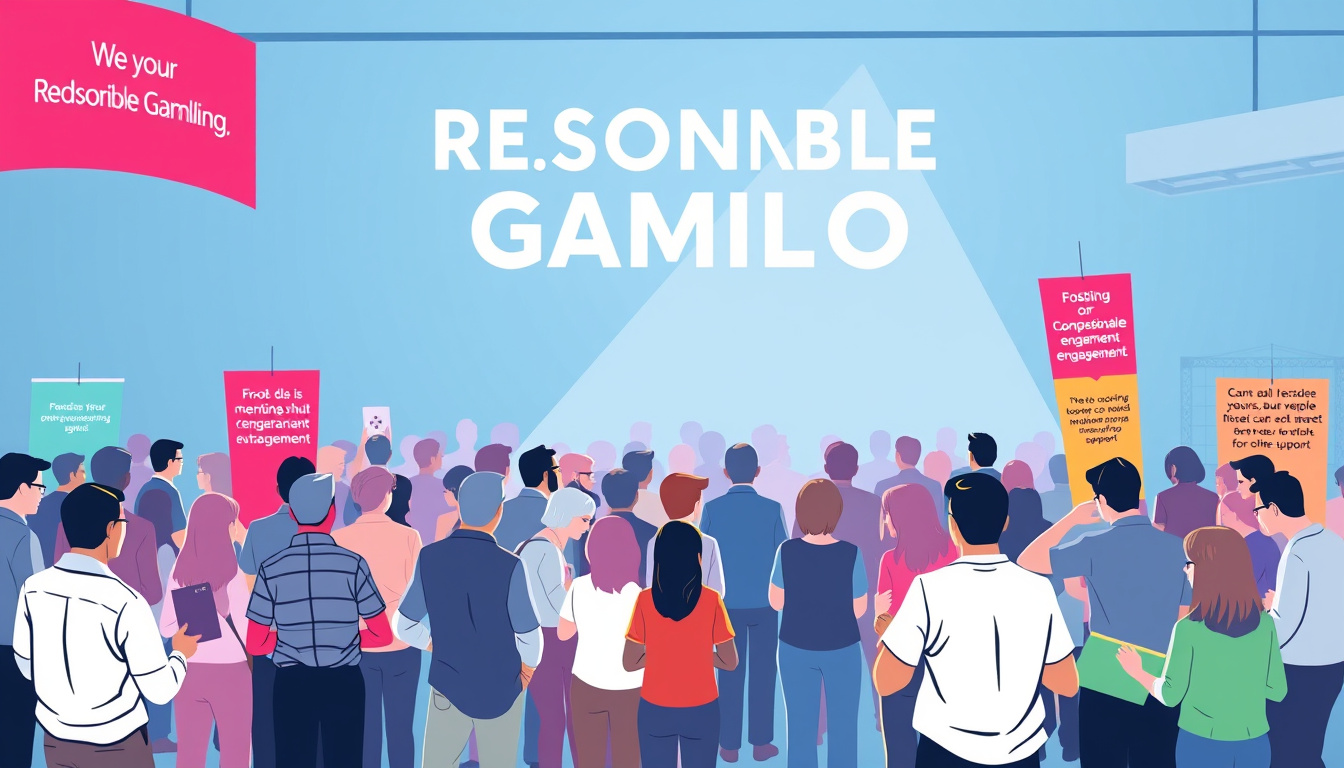How to Effectively Engage with Gambling Communities: Tips and Best Practices

Engaging with gambling communities can be both rewarding and challenging. These communities, which include both online forums and local support groups, provide a platform for individuals with shared experiences to discuss their passions, share strategies, and seek assistance for gambling-related issues. Whether you are a player looking to connect with others, a professional aiming to support those affected by problem gambling, or a researcher interested in the dynamics of these communities, understanding how to navigate and engage effectively is essential. Here are some tips and best practices to make the most of your interactions within gambling communities.

Understanding Community Engagement
Community engagement refers to the process of involving individuals in discussions and decisions that affect their lives, particularly in the context of addressing social issues such as gambling addiction. According to experts, effective community engagement relies on utilizing the lived experiences of its members to inform practices and policies. By listening to those directly impacted by gambling—such as gamblers, their friends and family, and treatment providers—communities can tailor their initiatives to meet actual needs.
Building Trust and Openness
One of the foundational elements of successful engagement is building trust with community members. This can be achieved by:
- Creating Safe Spaces: Ensure that discussions about gambling are non-judgmental and supportive. Participants should feel safe sharing their stories without fear of criticism.
- Being Transparent: Explain purposefully why you are engaging with the community and what you hope to achieve. Transparency fosters trust and encourages deeper participation.
Choosing the Right Platforms
As gambling behaviors increasingly transition to the digital realm, virtual communities have proliferated. These platforms can range from dedicated forums, social media groups, or in-game chat rooms. Identifying the right space will depend on your objectives:
- Online Forums and Social Media: These platforms are ideal for sharing experiences, discussing strategies, and offering peer support. Engaging in these forums provides opportunities to share advice and resources.
- Local Support Groups: In-person meetings can be beneficial for individuals seeking direct interaction and support. They foster a sense of community and can be crucial for those struggling with addiction.
Promoting Healthy Discussions
When engaging with gambling communities, it’s essential to focus discussions on constructive and educational topics. Here are some strategies:
- Facilitate Knowledge Sharing: Encourage members to share tips, strategies, and personal success stories. This can empower individuals and create a culture of support.
- Address Problem Gambling: If engaging in a community where discussions of gambling addiction arise, be prepared to sensitively address these topics. Share resources, such as helplines and treatment programs, and remind community members that seeking help is a sign of strength.
Engaging with Vulnerable Groups
Certain demographics, such as young men and specific ethnic communities, may be more susceptible to gambling-related problems. When engaging with these groups:
- Tailor Messaging: Use culturally sensitive approaches and language that resonates with their experiences. Understanding cultural nuances is critical in fostering genuine engagement.
- Collaborate with Local Organizations: Partner with non-profits or other local services that focus on these groups to ensure that efforts are well-informed and impactful.
Utilizing Feedback Loop
The effectiveness of community engagement can be improved by establishing a feedback mechanism:
- Surveys and Conversations: Regularly solicit feedback from community members regarding their needs and the effectiveness of existing initiatives. This can guide future efforts and foster a sense of ownership within the community.
- Adjusting Programs and Initiatives: Be willing to adapt based on feedback to ensure the community’s interests remain front and center.
Conclusion
Engaging with gambling communities involves a delicate balance of support, understanding, and active participation. By building trust, facilitating healthy discussions, and adapting based on community feedback, individuals and organizations can foster enriching environments. This collaborative approach not only enhances individual experiences but also strengthens the capacity of communities to address gambling issues collectively.
As gambling continues to evolve, the need for informed and compassionate community engagement becomes even more critical. Whether it’s sharing strategies for enjoying gambling responsibly or providing support for those grappling with addiction, being an active participant in these communities can truly make a difference.
